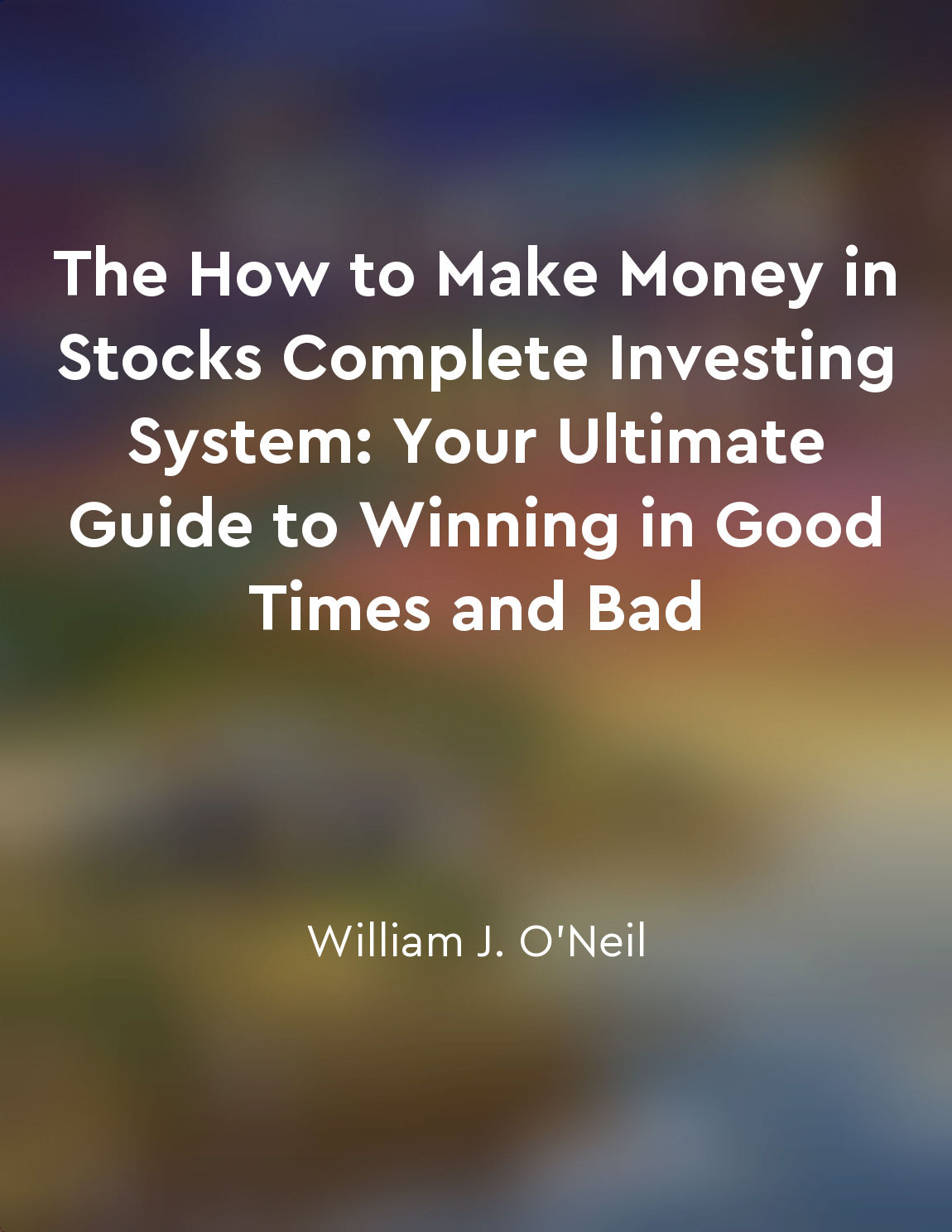Social factors impact investment decisions from "summary" of Irrational Exuberance by Robert J. Shiller
Investment decisions are not made in a vacuum. They are influenced by a myriad of social factors that can sway an individual's judgment and lead them to make decisions that may not necessarily be in their best financial interest. These social factors can range from the opinions of friends and family to the prevailing sentiment in the media. One of the key social factors that can impact investment decisions is the herd mentality. People have a tendency to follow the crowd, especially when it comes to making financial decisions. If everyone around them is investing in a particular asset or market, individuals may feel pressured to do the same, even if it goes against their better judgment. Moreover, social media has amplified the impact of social factors on investment decisions. With the rise of platforms like Twitter and Reddit, individuals are constantly bombarded with information and opinions about the market. This can lead to a phenomenon known as "information cascades," where people base their decisions not on the underlying fundamentals of an asset, but on the opinions of others. Another social factor that can impact investment decisions is the influence of authority figures. People may be more likely to invest in a particular asset if they see respected figures, such as financial experts or celebrities, endorsing it. This can create a sense of legitimacy around the investment and lead individuals to overlook potential risks.- It is important for investors to be aware of the social factors that can impact their decision-making process. By recognizing the influence of herd mentality, social media, and authority figures, individuals can make more informed and rational investment decisions that are based on sound financial principles rather than social pressures.
Similar Posts

Word of mouth is a potent form of persuasion
When it comes to influencing people, word of mouth is one of the most powerful tools at our disposal. Think about it - how many...
Prices not always flexible in the short run
In the short run, businesses may not always have the flexibility to adjust their prices in response to changes in demand. This ...
Cultural factors influence money practices
Money practices are not solely determined by individual preferences or rational decision-making. Cultural factors play a signif...
Cognitive dissonance influences financial behavior
When we make financial decisions, we often encounter conflicting thoughts and emotions. This internal conflict is known as cogn...

Stay motivated and committed to your journey towards financial success
To achieve financial success, you must maintain unwavering motivation and commitment throughout your journey. It is essential t...
Network with other investors for insights
When it comes to stock market investing and trading, one valuable strategy is to network with other investors. By connecting wi...
Trust must be established
To manipulate people effectively, you must first establish trust. Trust is the foundation upon which all manipulation tactics a...
Incentives drive human behavior
Human behavior is largely driven by the incentives that individuals face in their daily lives. When people are presented with i...
Making ideas surprising can make them more shareable
Why do some ideas go viral while others fizzle out? According to Jonah Berger, one key factor is surprise. When we encounter so...
Understanding cognitive biases can help navigate decisionmaking processes effectively
Cognitive biases are those mental shortcuts that our brains take in order to make decisions quickly and efficiently. However, t...


